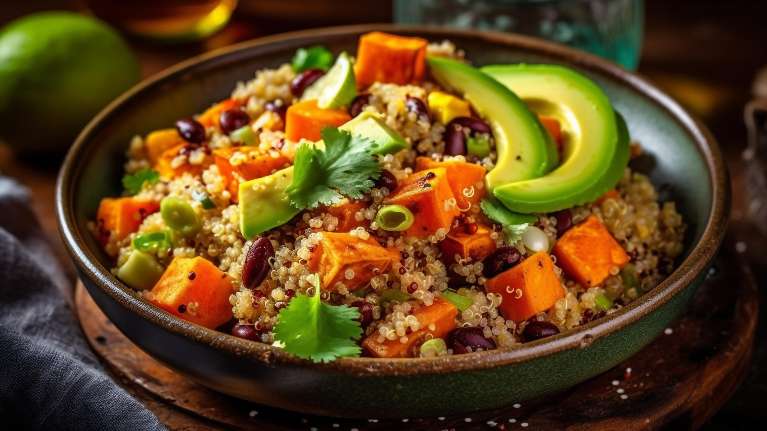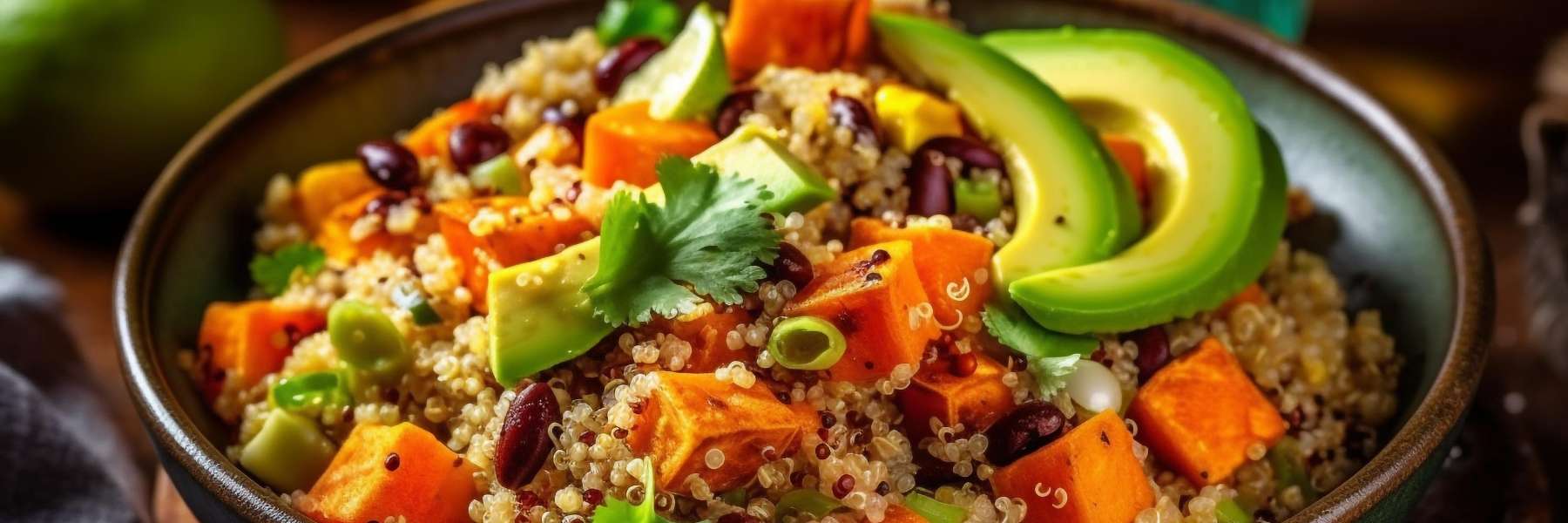
Getting adequate protein in your diet is good for you. Maybe you knew that. But, perhaps you didn’t know just how beneficial it can be for your health. Protein is important for muscle growth and strength. It can also help prevent sarcopenia (loss of muscle due to aging) and frailty, lengthening your life span. Several studies have identified protein as a key nutrient for older adults. Protein also helps in achieving a stronger bone structure, healthier hair, and skin, and much more.
Amino acids are the building blocks of protein. Your body makes some of these, however, nine of them — essential amino acids — must be obtained from your food. These nine essential amino acids are:
- histidine
- isoleucine
- leucine
- lysine
- methionine
- phenylalanine
- threonine
- tryptophan
- valine
Though protein is important for good health; as the old saying suggests — “too much of a good thing” is bad — protein is no different. Too much protein, especially from animal sources, can be harmful, putting you at risk for various health problems, such as developing kidney stones. For most adults, the average male needs about 55 grams of protein daily, and the average woman needs about 45 grams daily.
While complete proteins (containing all 9 essential amino acids) are more prominent in meat sources, several plant-based sources are safer for your body.
Here are 5 Plant-based, Complete Protein Sources:
- Tofu (soy). Tofu is made from soybeans which are a rich, complete protein source. Whether eaten as tofu, cooked soybeans, or soy milk, this is an excellent staple to meet your protein needs. A 3-ounce serving of tofu provides about 8 grams of protein. Soy is also rich in calcium, potassium, and iron.
- Quinoa. This ancient grain has a slightly nutty flavor and works well as a substitute for rice. You can also cook it as a cereal. One cup of cooked quinoa provides about 8 grams of protein. It is also rich in fiber, magnesium, iron, and zinc.
- Rice and Beans. The combination of rice and beans forms a complete protein. While both of these foods alone are high in protein, they each lack an amino acid. Pairing them creates a synergy that allows them to complete each other to provide all 9 essential amino acids.
- Amaranth. Here is another gluten-free, ancient grain that is a complete source of protein. One cup of cooked amaranth provides 8-9 grams of protein. Like quinoa, it is also an excellent source of fiber, iron magnesium, manganese, and phosphorus.
- Spirulina. This blue-green algae is packed with nutrition. A one-tablespoon serving provides 4 grams of protein. Spirulina is also rich in potassium, magnesium, riboflavin, and manganese. Research has shown that Spirulina can boost the immune system and offer anti-inflammatory benefits.
Other plant-based sources of complete protein include nutritional yeast flakes, buckwheat, and chia seeds. While relatively few, these foods provide all of the essential amino acids. Getting your protein from numerous sources always provides greater health benefits. Choose from a wide spectrum of plant-based foods, like beans, peas, nuts seeds, and grains. Varying your protein choices will prevent your diet from being too restrictive, and will help create protein synergy. So enjoy a wide of protein-rich foods.
Sources:
